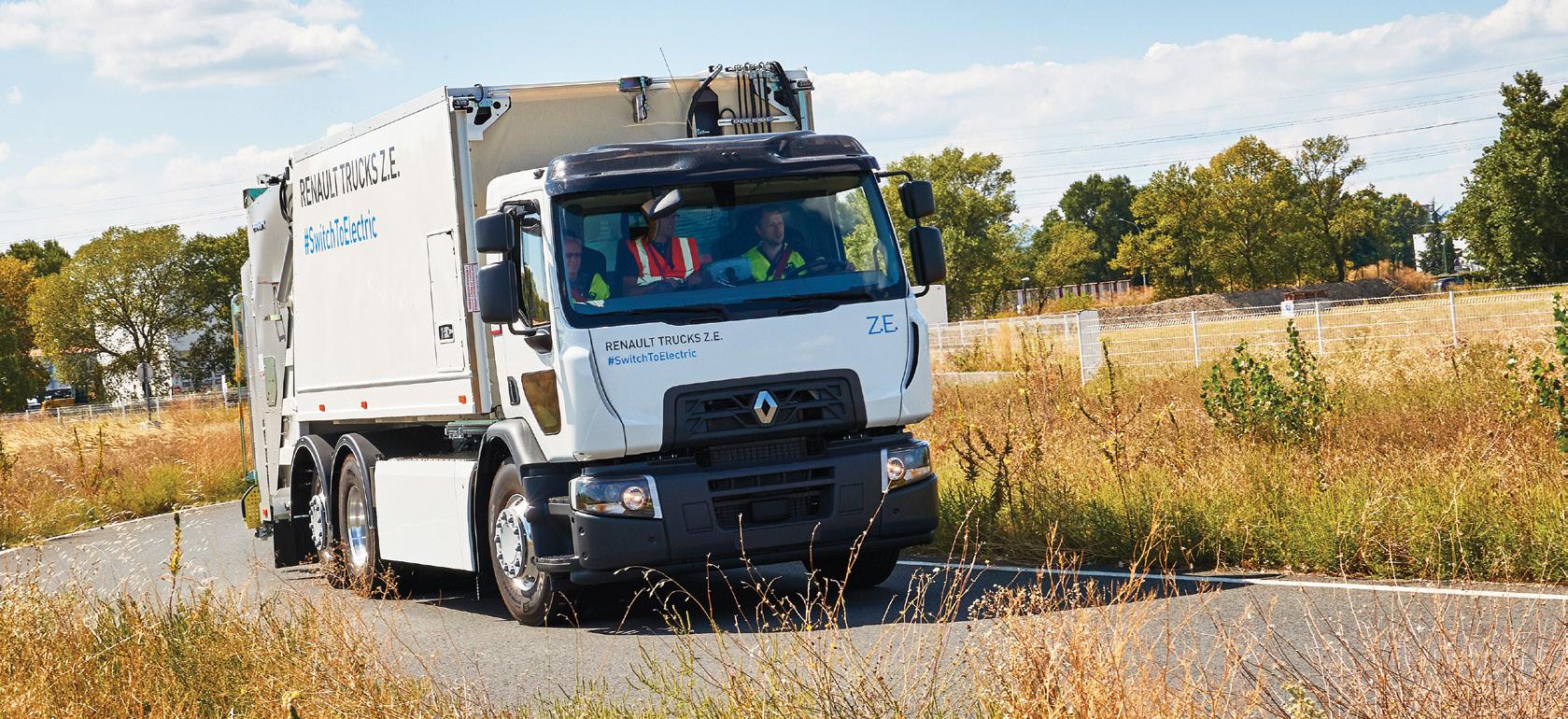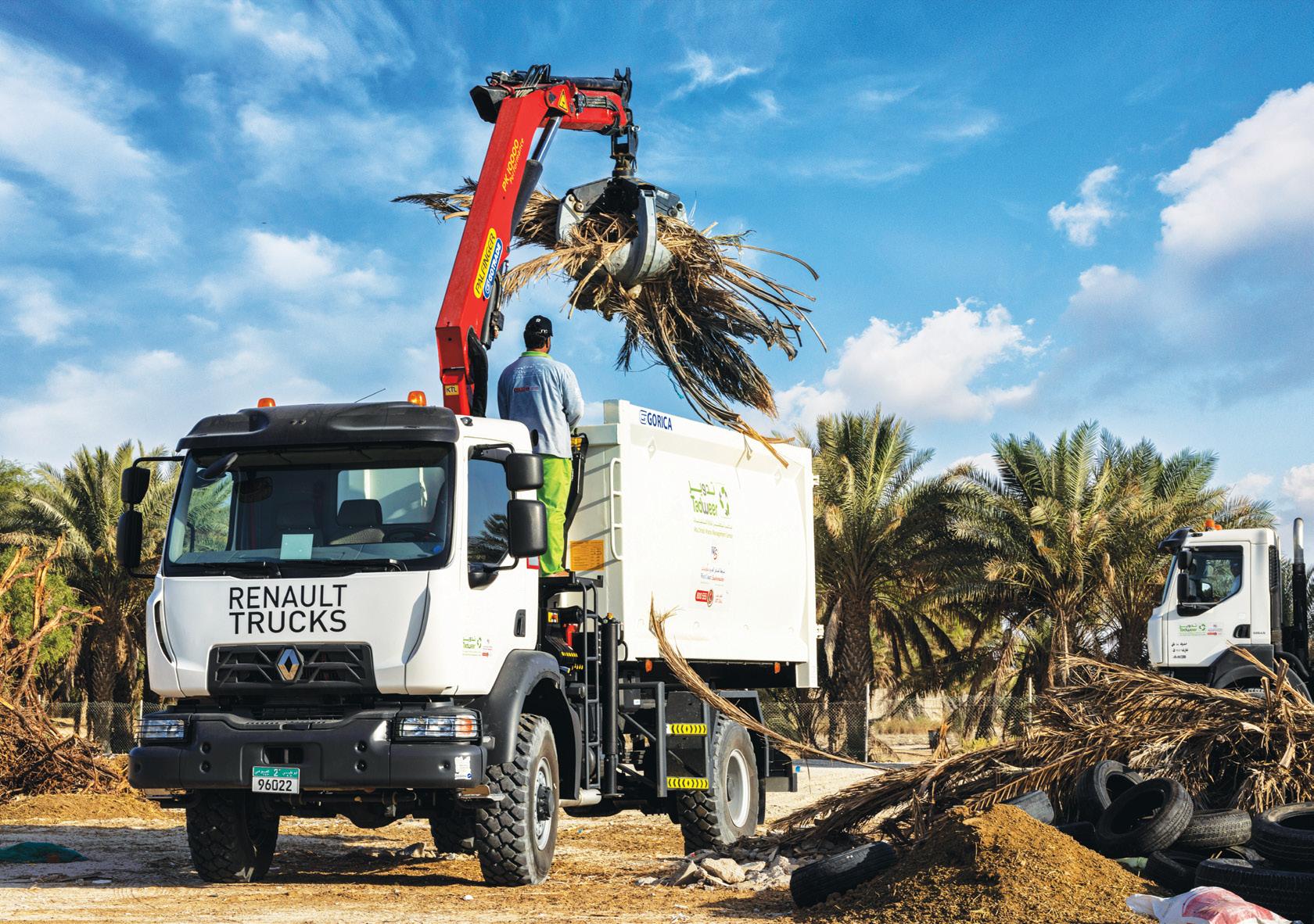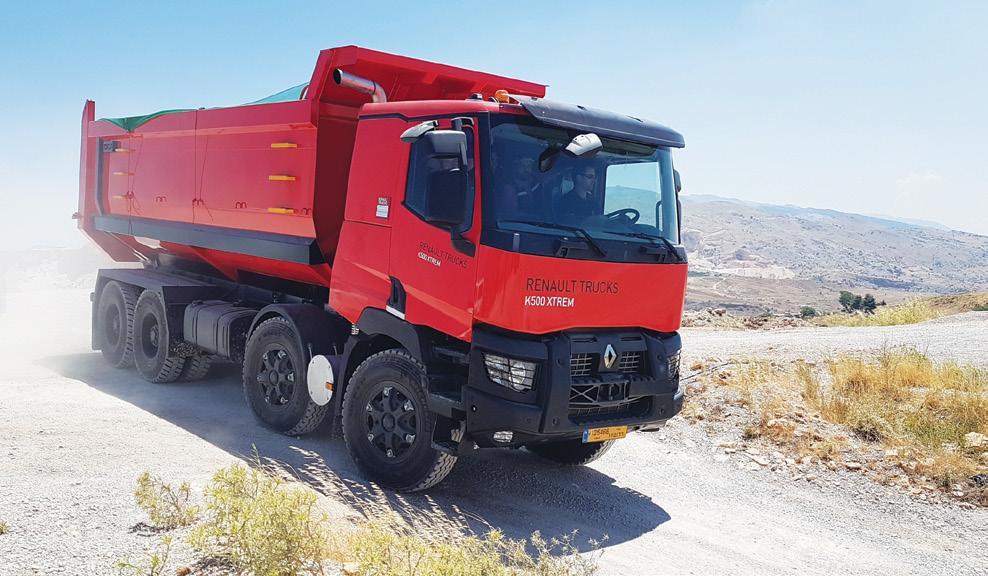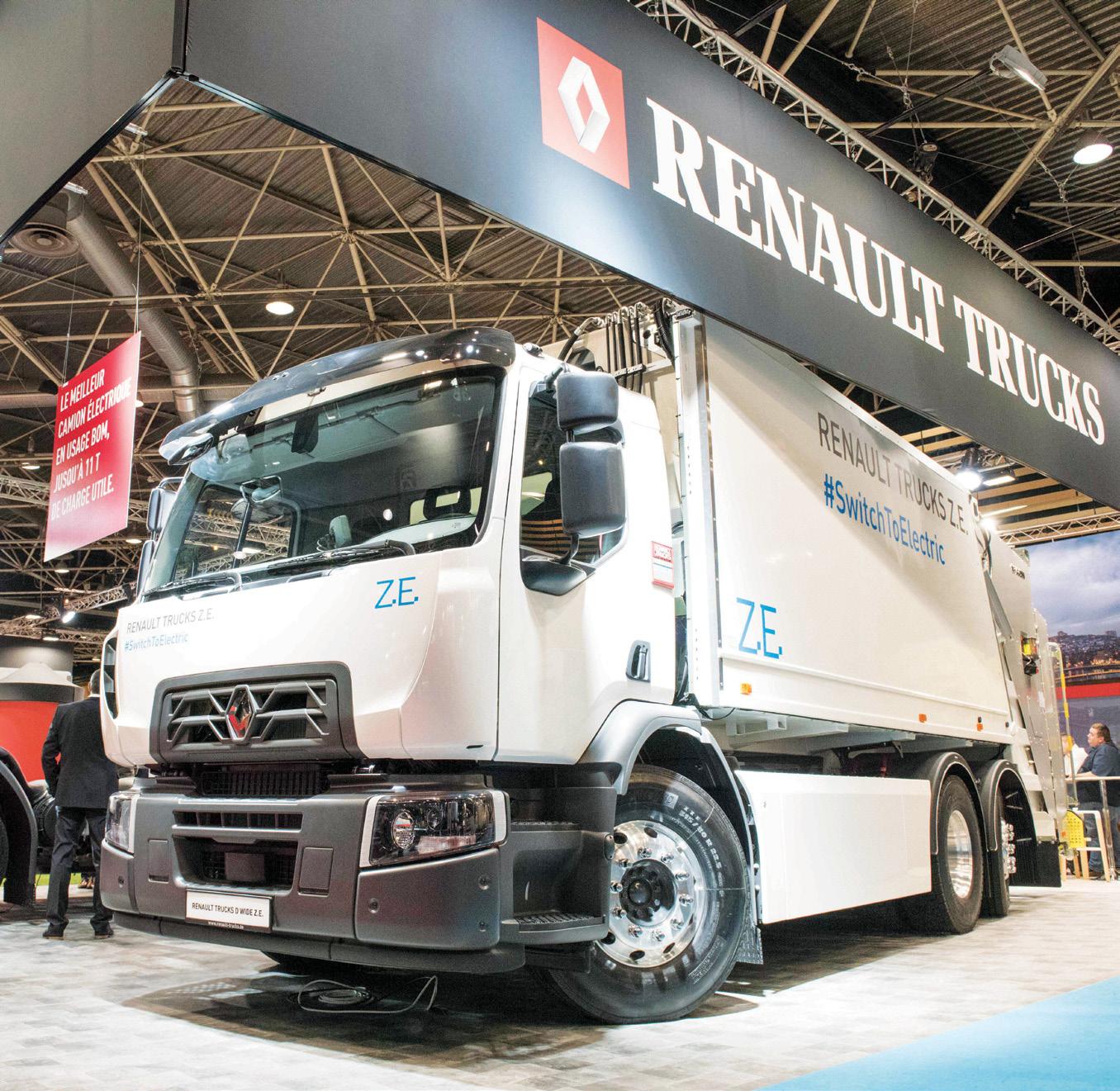
7 minute read
RENAULT ROLLS ON
SEIZING THE METAL
Renault Trucks’ boss Bruno Blin looks back on a challenging year for the industry
With manufacturers scaling back their manufacturing and people being asked to avoid meeting in Europe, Renault Trucks’ EVP Bruno Blin sits comfortably, broadcasting to the world via the internet. It is an unprecedented move to provide an update on the French company’s progress and how it hopes to deal with the continuing challenge of the Coronavirus within the industry.
“2019 was a very contrasting year but we have seen the market going down at the end of the year. But I have to say that I am very happy,” he begins. “We have been able to invoice 54,000 trucks in 2019, which is roughly 1,000 less than 2018. A pretty
18 APRIL 2020 good performance in a turbulent market. It was great performance on used trucks and we have invoiced 9,400 Vehicles, which is 1,000 more than 2018 or 11% more.”
The increasingly important spare parts business at Renault Trucks also saw a 3% rise in turnover. He adds that light duty trucks saw a decrease of 1.7% in sales, a result he suggests, that is a consequence of vehicles simply doing less mileage in the year.
He continues: “If we think about the market share, I would say that it’s also a stable performance in a kind of challenging and changing market. It was very dynamic at the first part of the year (plus 15%) but then there was a major slowdown in the second half of the year. We have seen an 18% lower market at the end of 2019, but we have been able to maintain our market
share around 8.5% on vehicles over 6t. If we look at heavy duty it is minus 0.1%. And if we look at the medium duty it is plus 0.3%.” While he is satisfied with the financial results for the year, Blin is aware that the company has lost ground in some European markets, where it has been gaining ground in recent years.
“If we look at the map of Europe, basically we have been up, or stable, in 16 markets when it come to the market share, but we have been dropping in nine countries,” he explains. “And, of course, we have to react on that...the idea is to go up everywhere. We really have a strong ambition to go up in Europe. This is why we have decided to change our setup a little bit.” He says this change in approach has led to the creation of teams dedicated to its
brands in all the markets except the north of Europe:“This means that we are optimising the organisation and we will have local teams dedicated to Renault Trucks; really thinking from the morning to the evening of selling and focusing on the success of our customers. That I think is very important.” Looking further afield, Blin describes a more difficult scenario for the firm to navigate. He estimates that global sales of new trucks could fall by 15% in the year. The Middle East, he says, is among those territories where the company is able to hold its ground. “We have gained market share in Middle East. We have gained market share in Africa and Turkey, where, for example, we have had a record year for Renault Trucks,” he enthuses. “We went from 5.8% to 8.8% percent in 2019. There has been a fantastic job done by the marketing company in Turkey, supported by Renault Trucks’ Financial Services. It is really a great, great performance.” Elsewhere in the region, Blin muses on the impact that the changing political situation in Algeria where the start-up of local knock-down kit production made 850 trucks in 2019. The oil-producing country is a feather in the cap of the French company as it enjoys a 26% share in the market. Blin it is bullish on the company’s plans to build on it legacy in the North African market despite the government signalling it may pull out of trade arrangements made between the EU and former leader President Abdelaziz Bouteflika. “I am very happy with what I have seen – I have seen a great factory. I have seen very engaged and skilled people working in this factory, and that of course, is very encouraging for the future. In 2019, we produced 850 vehicles – mainly C and K range type of vehicles. In 2020, we will start to go for the D Range.”
He notes that in Algeria, Renault Trucks has more than 500 people working on-site. “It’s a very important country and we know that we have some turbulences, some announcements from the government a new charge. We will see how this will develop but, of course, our intention is to stay and stay strong in Algeria.”
Beyond Algeria, Renault Trucks has bolstered its network and strung new distribution partners in Egypt, Iraq and Lebanon: “I think it’s important also to say that we are extending our scope in the Middle East.” The last year has seen many of Renault Trucks’ competitors gear-up their electric vehicle offering and while Blin stresses that the company is focused on providing a choice – including natural gas powered vehicles – to customers he is animated as he talks about the start of series production of the company’s D ZE and D-Wide ZE ranges at its plant in Blainville-sur-Orne. The company can now offer the widest range of electric trucks from 3.1t up to 26t, he claims. “It’s a very important and we are extremely proud of this,” he explains, adding that these vehicles will be assembled in the same line as the regular of vehicles.
“We use a fishbone type of factory as we do for our diesel models. The D and the D-Wide will be assembled on the same

lines and at the end of the line we will have some additional testing for the ZE vehicles. We are the first one doing that.”
Blin believes it will be trucks most suited for urban applications where they will be most popular. He expects that, by 2025, 10% of vehicles sold will electrically powered. “Today 50% of the vehicles that we are selling are used or are operated in the urban environment,” he says. “We already have a pretty big market share position in this environment, and we know electrification will start in the cities.”
More immediately, the commercial vehicles industry has to face up to the challenge of the Coronavirus outbreak. Blin says the company is taking the situation very seriously.

GAINING SHARE IN THE MIDDLE EAST Blin says that Renault Trucks gained market share in the region during 2019 and had a record year in Turkey.

A YEAR OF STABILITY Renault Trucks recorded invoices totalling 54,000 new trucks in 2019, down just 1,000 units on the year before.
USED TRUCKS BECOMING MORE IMPORTANT
“Used trucks are very important for Renault trucks and on the top of our agenda. We have invoiced more 9,400 vehicles which is 11% up compared to 2018. We have been keeping good control of our inventory which in this situation and period of time is very important because the price in the market has been has been going down. For us it was key to maintain a good level when it comes to the stock and inventory.
“I think the good performance is thanks to the different activities that we have performed. For example, we have 23 used trucks locations and we want to increase this level of sites. We want to add 70 new locations and have tried to deploy an offer that differentiates us compared to our competitors. For example, we have the T selection - carefully selected, recent Vehicles - where we check 200 different points and offer a guarantee of two years or 200,000 kilometers.” “We need to handle it in a very cautious way. The first thing that we want to do is to protect our people. However, we are monitoring the situation step by step; continuing to operate our business and serve our customers. Our factories are still up and running and in one way it’s business as usual. But at the same time, we are also very careful. We are limiting traveling, meetings, conferences, to limit contamination.” What does Blin think the impact will be on the industry?
“I think it’s little bit too early to have a clear view. We know that it will have an impact and we are preparing ourselves.”
NAVIGATING THE CORONAVIRUS Blin says that Renault Trucks is taking the threat of the Coronavirus seriously but doesn’t want to leave customers behind.


20 APRIL 2020 THE WIDEST RANGE IN THE MARKET According to Bruno Blin, the start of series production of its electric trucks gives it the widest offering for fleets in the industry.








